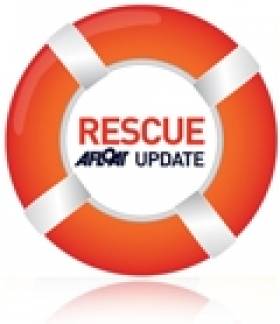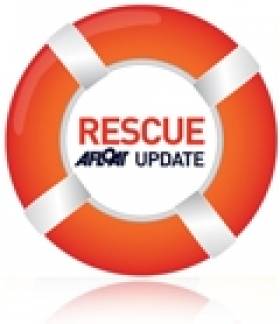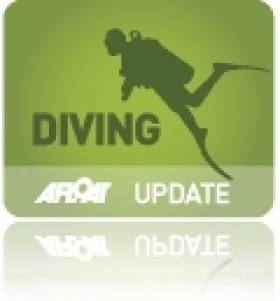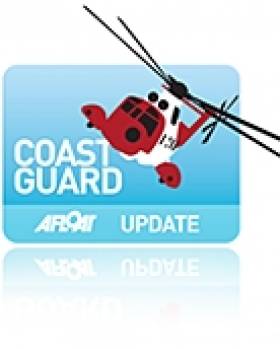Displaying items by tag: body
Body Found On Beach In Co Meath
#News - TheJournal.ie reports that the body of a man in his 40s was found on Mornington Beach in Co Meath this morning (10 September).
Gardaí are investigating the incident and the scene near Bettystown has been sealed off for forensic examination.
The grim discovery comes just hours after a body was recovered from the Avoca River, while a second person is still missing.
Body Recovered Off Dublin Thought to Be Missing Fisherman
#RESCUE - The Evening Herald reports that a body recovered 14km off the coast of north Dublin on Sunday is believed to be that of a missing fisherman.
The grisly find was made by the fishing vessel Rath Eilte in the waters off Skerries. A post-mortem was set to be carried out yesterday to determine the cause of death.
Found fully clothed in black and yellow oilskins, the remains are thought to be those of a Ukrainian in his 30s, a crewman on the Kilkeel-registered Zenith who was reported missing some 14.5km off Clogherhead in Co Louth on 29 January.
Body Recovered as Search for West Cork Fishermen Continues
#RESCUE - Garda divers have this morning recovered a body in their search for the crew of the fishing vessel Tit Bonhomme off the coast of West Cork.
As previously reported on Afloat.ie, five of the six-person crew went missing after the boat ran aground and went down rough seas near Adam's Rock, at the mouth of Glandore Harbour.
The five men include skipper Michael Hayes from Helvic Head in Co Waterford, Dubliner Kevin Kershaw (21) and Egyptians Said Mohammed (23), Wael Mohammed (35) and Attea Ahmed Shaban (26).
RTÉ News reports that the body recovered this morning has not been identified, but it is believed to be that of an Egyptian national.
Dive teams from the Garda and Naval Service have been set back by the trawler's position wedged in a narrow inlet with strong wash and backwash on either side, but were said to have made "significant progress" during dives yesterday.
A broader search is also being conducted inside and outside the harbour area and surrounding coastline, assisted by fishing boats, Irish Coast Guard rescue helicopters, and small boats and kayaks.
Rescuers Searching for Student Find Body Off Achill Island
#NEWS UPDATE - The Irish Times reports that rescue teams searching for a Finnish student who fell off a cliff on Achill Island have found a body.
The 22-year-old student was thought to be visiting the area yesterday when he slipped and fell down the sheer cliff face at Cloughmore.
The Irish Coast Guard and Achill's RNLI lifeboat were swiftly at the scene after the alarm was raised by a friend of the student.
A spokesperson for Malin Head Coast Guard commented: “A body has been located but we haven’t been able to recover it yet because the weather has been so rough."
The location of the body is in an area with a significant swell and close to jagged rocks. It is hoped that conditions would improve today to allow the rescue heliopter to recover it.
Body on Newry Beach Could Be That of Missing Kayaker
As previously reported on Afloat.ie, area man Mark McGowan, 37, was last seen kayaking in the lough at 7.30pm on Monday 10 October.
His blue kayak was spotted by the Irish Coast Guard on 11 October at Killowen Point, on the north side of the lough.
A cross-border search and rescue operation was immediately launched but progress was hampered due to bad weather.
The Belfast Telegraph reports that a body was discovered on Cranfield Beach near Newry by a member of the public yesterday morning. Formal identification of the body has not yet taken place.
At the time of his disappearance, McGowan was described as 5'7" tall, medium build, with a clean shaven, tanned complexion and short bleached blonde hair. He was last seen wearing a red jacket, blue jeans and white trainers.
Body Found on Scottish Beach Believed to Be Missing NI Woman
The body of a woman found washed up on a beach in Scotland's Mull of Kintyre is believed to be that of Northern Irish woman Karen Coyles, who disappeared from her home in Ballycastle, Co Antrim on 11 September.
The Irish Times reports that a tourist found the body yesterday afternoon. It is believed to have been in the water for some time.
A postmortem will be carried out today on the body, the identity of which has yet to be confirmed.
A major search and rescue operation had been launched for Coyles, 47, whose car was found at McQuillan's GAA club where she is captain of the camogie team.
Cave Divers Body Recovered from Galway Cave
Body Found in Galway Bay
The body of a man was found yesterday on an uninhabited island in Galway Bay, according to RTÉ News.
The body was discovered on the shoreline of Rabbit Island, close to the entrance to Galway Harbour, by a coastguard helicopter during a search for a man seen falling into the River Corrib on Sunday night.
However the body is said to have been in the water for more than a week.
A post-mortem was set to be carried out at Galway University Hospital yesterday afternoon, while the air and sea search of the bay continues.




































































